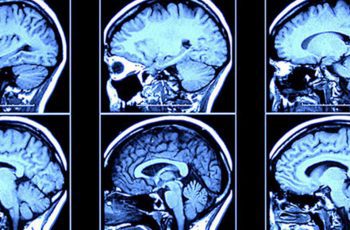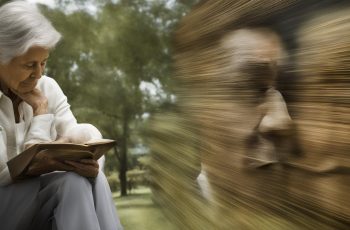
Why is Your Whole Body Shaking In Your Sleep?
Everyone appears to fall into one of two groups when it comes to sleeping. It’s not uncommon for people to fall asleep the moment their heads hit the pillow and to wake up feeling rested the next morning. Those with sleep problems that range from merely inconvenient to life-altering are located in a separate category.
Sleep problems, from night terrors to sleep paralysis, are prevalent. “About 40 million people in the United States suffer from chronic, long-term sleep disorders each year,” according to the National Institute of Neurological Disorders and Stroke (NINDS), which was quoted by HealthCommunities.com.
Night tremors are characterized by twitching, shaking, or jerking motions, and we’ll talk about them below. As irritating as these tremors may be, they aren’t necessarily dangerous. Whole body shaking in your sleep is caused by your brain working overtime as you prepare for sleep. In most circumstances, this may be explained.
In rare cases, nocturnal tremors are a warning indication of a more serious medical condition, so keep reading to find out what’s causing yours.
What Are Night Tremors?

So, what exactly are these vibrations in the middle of the night? There are several different types of night tremors. The most common is called sleep myoclonus, and it can occur alone, in a group, or at random, as described by the American Sleep Association. Lips, eyes, hands, and feet are just a few examples of body parts that can experience jerking or twitching. Myoclonus can also appear as a simple jerk, or “start,” in some cases.
When Do Night Tremors Occur?
Even though night tremors can occur at any hour of the night, it appears that the most common harmless ones (those not related to more serious medical conditions) occur just as you’re about to go asleep. For example, “Sleep start jerking” and “periodic limb movements,” which are most common in the first third of the night are “normal causes of shaking,” according to NetWellness.
If, on the other hand, your nocturnal tremors are getting worse or spreading to other parts of your body, you should visit a doctor.
What Causes Night Tremors?

Having a whole body shaking in your sleep is not a sign of a medical condition. Rather, they are a sign of a deeper problem. It is possible to suffer from night tremors as a result of a variety of diseases. According to University Health News, persons with night tremors are most likely to suffer from restless leg syndrome or a closely related condition known as a periodic limb movement disorder. Continue reading to find out more about these and other tremor-causing conditions.
Restless Leg Syndrome
Restless leg syndrome is a condition that makes it difficult for people to sit still for long periods of time because of the constant want to move their legs. ““People with RLS feel the irresistible urge to move, which is accompanied by painful sensations in their lower limbs that are unlike normal sensations experienced by people without the disorder,” says NINDS.
Periodic Limb Movement Disorder
Periodic limb movement disorder (PLMD) is defined as the “repetition of motions in the lower limbs that occur approximately every twenty to forty seconds. As a person with PLMS (also known as a periodic limb movement disorder, or PLMD, periodic limb movement syndrome), you may notice twitches, jerks, or an upward flexing of the feet as you sleep.” From a few minutes to several hours, these episodes might occur at any time.
Sleep Apnea
Myoclonic jerks and twitches are common in patients with obstructive sleep apnea, a disorder in which breathing is stopped for short periods of time. Apnea episodes are frequently accompanied by these movements.
Peripheral Artery Disease (PAD)
Peripheral artery disease (PAD), according to the American Heart Association (AHA), is a narrowing of the arteries in the legs, stomach, arms, and brain. Numbness, weakness, and spasms might result from a lack of blood supply to your limbs.
REM Behavior Disorder (RBD)
According to the Mayo Clinic, a sleep condition called rapid eye movement (REM) sleep behavior leads you to physically play out your dreams through spastic limb movements and vocalizations.
In response to frightening, action-packed nightmares, persons with this disease may flail, twitch, and punch – some even get up and wander around in their sleep!
Night tremors: Is it Time to See a Doctor?

Night tremors are more bothersome than dangerous the majority of the time. That doesn’t mean you should rule out seeing a doctor. If you wake up shaking in the middle of the night, talk to your doctor about how you can stop the shaking and get a better night’s sleep.
According to the Sleep Management Institute, new FDA-approved drugs are now available to help people suffering from restless leg syndrome or periodic limb movement disorder (PLMD). If sleep apnea is to blame, a CPAP machine can help you get a better night’s rest. You may, however, need to enhance your overall sleep hygiene if your tremors aren’t linked to any other medical conditions.
Can You Prevent Night Tremors?

You can take simple efforts to improve your sleep if you wish to avoid night tremors. A good night’s sleep can be achieved by following these general guidelines:
- According to Livestrong, excessive use of alcohol and caffeine before bedtime might produce harmless but irritating body shaking.
- Make your bedroom a calm and orderly place to sleep.
- Regular physical activity will help you burn off extra energy.
- When it’s time to wind down for the night, stay away from electronic devices like televisions and computers.
- To help you sleep, play soothing music or meditate.
- As much as possible, stick to a regular sleep schedule.
You can lessen your night tremors by doing these things. This can be avoided in the long run, but only by working with your doctor and finding out what’s causing them in the first place.
Make sure to SHARE it with your friends and family if you find this information useful.




